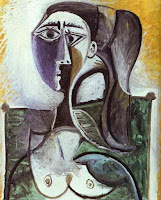What is the
difference between anger, aggression, attacks and abuse?
Anger is an
emotion, the feel of an experience, a state of mind. It is neither good nor bad,
but usually has negative effects on the person feeling it, and is associated with the
colour red (love with pink, jealousy with green). It can be expressed safely to others using an
I-statement: “I am angry that you said that”.
As long as
the separateness of another person is respected, as long as anger is expressed TO
and not AT another person, anger can be shared without hurting someone else.
Aggression
is anger expressed AT another person. Aggression
hurts others. Overt aggression is conveyed
in ways that are usually obvious, whether verbally or physically, as jabs or
punches. Covertly it is usually
expressed by acts of omission, silence or other forms of passive aggression. Though aggression may hurt others, it is not
necessarily aimed at or intended to hurt anyone.
Attacks are
aimed at another person with the intention of causing harm. Attacks consist in words or actions directed
at someone, a target, for the express purpose of hurting him or her. The motivation may be anger, but more often
the motivation is revenge, which can and often does occur in the absence of anger;
in fact, the fire of emotion is usually absent from premeditated or terrorist attacks, which is why they are cold-blooded, the most insidious attacks of all.

Abuse is a
pattern of aggression which harms, frightens or controls another person.
It is situation-specific. Context, like power differentials and the effects on the victim, need to be considered in
order to determine whether it is abuse. For
example, a woman may hit a man but the man may not feel frightened; whereas a
woman almost always feels frightened when a man hits her. A child may scream at his mother but the
mother may not feel controlled; whereas a child almost always feels terrorized by
a screaming mother. A student may sleep
with her teacher but the teacher is usually not harmed; whereas the student
almost always is.
Abuse, unlike
an attack, may not be intended, and it usually isn’t. Nevertheless, it is still harmful and it is
still abuse.



